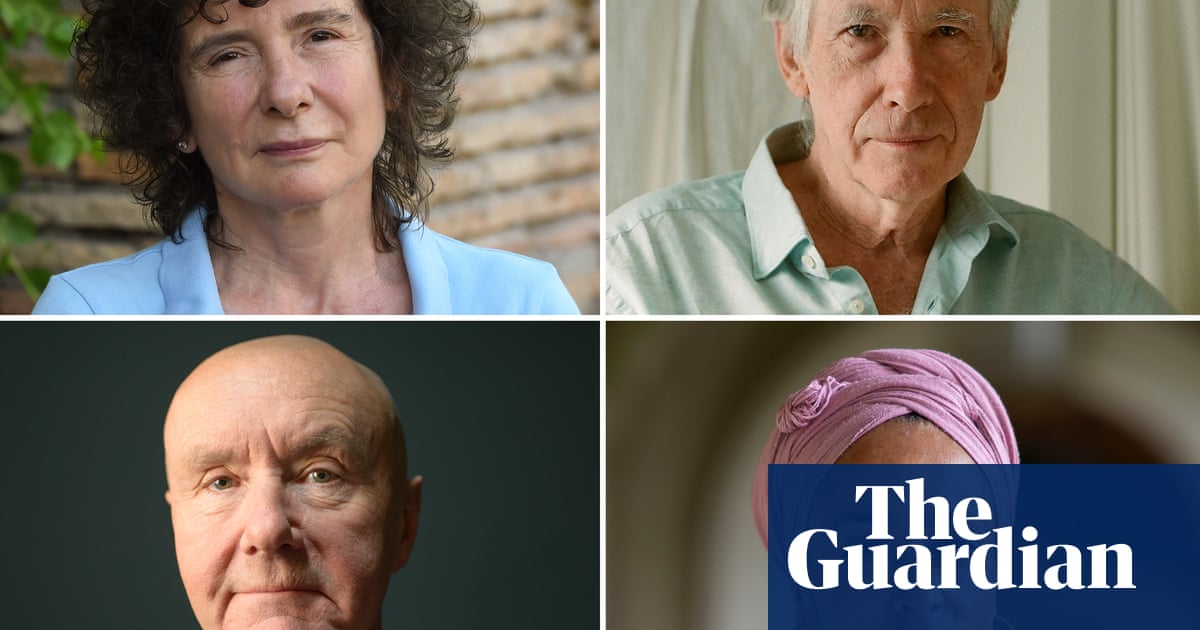Three hundred and eighty writers and organisations including Zadie Smith, Ian McEwan, Russell T Davies, Hanif Kureishi, Frank Cottrell-Boyce and George Monbiot havesigned a letterstating that theIsraeli government’s war in Gazais genocidal and calling for an immediate ceasefire.
“The use of the words ‘genocide’ or ‘acts of genocide’ to describe what is happening in Gaza is no longer debated by international legal experts or human rights organizations,” reads the letter, which was also signed by William Dalrymple,Jeanette Winterson, Brian Eno, Kate Mosse, Irvine Welsh and Elif Shafak.
Organisations including Amnesty International, Human Rights Watch and the United Nations human rights council have “clearly identified” acts of genocide enacted by the Israeli Defense Forces (IDF), the letter says, while public statements by the Israeli ministers Bezalel Smotrich and Itamar Ben-Gvir “openly express genocidal intentions”.
The writers call for the immediate unrestricted distribution of food and medical aid inGazaby the UN, and a ceasefire “which guarantees safety and justice for all Palestinians, the release of all Israeli hostages, and the release of the thousands of Palestinian prisoners arbitrarily held in Israeli jails”. If the Israeli government does not heed calls for an immediate ceasefire, sanctions should be imposed, they say.
The writers Horatio Clare, Kapka Kassabova and Monique Roffey organised the letter, which has garnered 380 signatures.
It opens with a poem, titled A Star Said Yesterday, by the Palestinian poet Hiba Abu Nada, who was killed by an Israeli airstrike in October 2023. “And if one day, O Light / All the galaxies / Of the entire universe / Had no more room for us / You would say: ‘Enter my heart, / There you will finally be safe.’” In the poem, Abu Nada “imagined for the people of Gaza a cosmic refuge – something utterly unlike the constant lethal danger they now face”, reads the letter.
The letter goes on to say that Palestinians “are not the abstract victims of an abstract war. Too often, words have been used to justify the unjustifiable, deny the undeniable, defend the indefensible. Too often, too, the right words – the ones that mattered – have been eradicated, along with those who might have written them.”
The term “genocide” “is not a slogan”, it adds. “It carries legal, political, and moral responsibilities.”
The letter quotes arecent statementpublished by the office of the UN high commissioner for human rights, which says: “While States debate terminology – is it or is it not genocide? – Israel continues its relentless destruction of life in Gaza, through attacks by land, air and sea, displacing and massacring the surviving population with impunity.”
The Israeli prime minister,Benjamin Netanyahu, has said previously that “the charge of genocide levelled against Israel is not only false, it’s outrageous, and decent people everywhere should reject it”.
More than 53,000 Palestinians have been killed by Israel since 7 October 2023, according to the Hamas-run Gaza health ministry. More than 1,200 people were killed in the Hamas-led attack on Israel.
“Just as it is true to call the atrocities committed by Hamas against innocent civilians on 7 October 2023 crimes of war and crimes against humanity, so today it is true to name the attack on the people of Gaza an atrocity of genocide,” the letter states.
“We refuse to be a public of bystander-approvers,” it continues. “This is not only about our common humanity and all human rights; this is about our moral fitness as the writers of our time, which diminishes with every day we refuse to speak out and denounce this crime.
“In taking this stand, we assert without reservation our absolute opposition to and loathing of antisemitism, of anti-Jewish and anti-Israeli prejudice. We reject and abhor attacks, hate and violence – in writing, speech and action – against Palestinian, Israeli, and Jewish people in all and any form. We stand in solidarity with the resistance of Palestinian, Jewish, and Israeli people to the genocidal policies of the current Israeli government.”
Other signatories include Scottish PEN, Jonathan Coe, Susie Orbach, Kevin Barry, Benjamin Myers, Andrew O’Hagan, Sarah Bernstein, Philip Marsden, Fiammetta Rocco, Lucy Jones, Monique Roffey, India Knight, Nick Laird, Nina Stibbe, Seán Hewitt, Xiaolu Guo, Chris Power, Joe Dunthorne and Marina Warner.
“This genocide implicates us all,” the letter concludes. “We bear witness to the crimes of genocide, and we refuse to approve them by our silence.”
